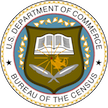 Money remains a major barrier in the quest for educational equality in America. With annual costs of more than $50,000 for some private colleges and universities and fees of more than $20,000 at some state-operated higher educational institutions, sticker shock tends to push people away from attaining higher education. It is true that there are vast financial aid resources available but often full financial need cannot be met and prospective students are faced with the prospect of going into substantial debt in order to obtain a college degree.
Money remains a major barrier in the quest for educational equality in America. With annual costs of more than $50,000 for some private colleges and universities and fees of more than $20,000 at some state-operated higher educational institutions, sticker shock tends to push people away from attaining higher education. It is true that there are vast financial aid resources available but often full financial need cannot be met and prospective students are faced with the prospect of going into substantial debt in order to obtain a college degree.
The lack of money for higher education is of particular concern to the African American community. There are millions of young Black Americans who come from low-income families who don’t even bother to consider pursuing higher education.
The latest data from the U.S. Census Bureau shows that in 2013, 11,041,000 African Americans were living below the official poverty line in the United States. This was 27.2 percent of the entire Black population. In contrast, only 9.6 percent of the non-Hispanic White population was living in poverty. The Black-White poverty rate gap where African Americans are about three times as likely to be poor as Whites, has remained virtually unchanged for the past 40 years.
The poverty rate is even more severe for Black children. In 2013, there were 4,244,000 African Americans under the age of 18 in the United States who were living in poverty. This was 38.3 percent of all African American children. In 2002, 32.3 percent of all Black children were poor.
The full Census Bureau report, Income and Poverty in the United States, 2013, may be downloaded by clicking here.












